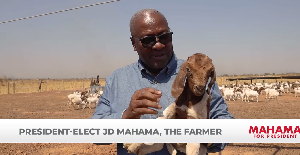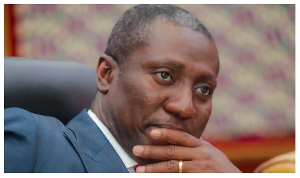There are currently more than 100 different laws governing land in Ghana, and over 66,000 outstanding pieces of land litigation.
These disputes mostly concern family land, land boundaries, encroachment, and the sale of encumbered land.
Speaking at the launch in Accra yesterday of a research project on ?Land Tenure and Policy Reform in Ghana?, Professor Nii Ashie Kotey said the situation was adversely affecting the development of business and the realisation of the ?Golden Age of Business.?
He stated that most of the land laws were relics of the imperial era, and suggested that reforms should be initiated to make the land laws relevant to the country?s current needs.
The Director of the Institute of Statistical, Social and Economic Research (ISSER), Prof Ernest Aryeetey, said that Ghana was poor because the greatest and most widely available resource, which was land, was not being adequately or properly utilised.
He said that reforms of the land tenure system could bring about the structural change needed in this country, adding that these reforms would not only make land economically productive, but also bring about essential social change.
Prof Aryeetey was concerned that for political reasons no land reforms had been pursued in Ghana in more than 40 years.
The Vice Chancellor of the University of Ghana, Prof Kwadwo Asenso-Okyere, said that the bureaucracy involved in land title registration affected planning and revenue collection, which ultimately retarded economic development. He called for the acceleration of the process for obtaining legal title to land which would lead to a steady increase in revenue generation.
Click to view details



Business News of Wednesday, 15 December 2004
Source: Times
















